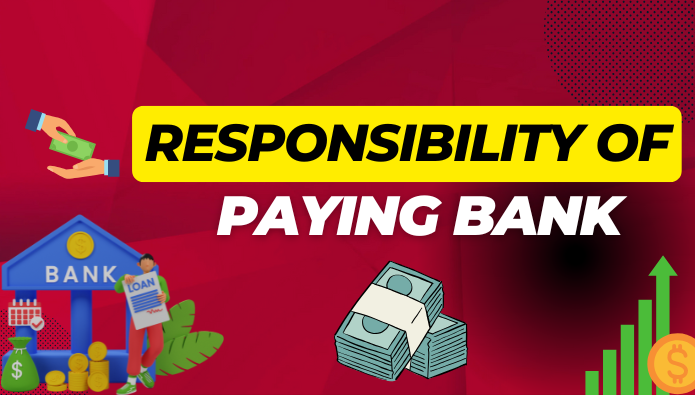Imagine this: A bank dishonors a valid cheque even though the account has sufficient balance. Who is liable? What compensation is required?
If you’re preparing for JAIIB, working in a bank, or simply curious about banking laws, this is an essential concept to understand.
📚 JAIIB Study Resources 📚
👉 Check Here
👉 Check Here
👉 Check Here
👉 Get Tests Here
👉 Check Here
In this video, we cover:
- What is a Paying Bank & its responsibilities
- Key provisions under the Negotiable Instruments Act
- Landmark court cases & real-world banking scenarios
- When banks are protected & when they are liable
📺 Watch the Full Video:
The Responsibilities of a Paying Bank – A Detailed Breakdown
🔹 What is a Paying Bank?
A paying bank is the bank on which a cheque is drawn and which is responsible for making the payment to the payee.
🔹 Key Players in the Cheque Clearing Process
- Drawer – The person who writes the cheque
- Payee – The person receiving the payment
- Collecting Bank – The bank where the payee deposits the cheque
- Paying Bank – The bank responsible for clearing the cheque
🔹 Section 31 of the Negotiable Instruments Act – When Must a Bank Honor a Cheque?
According to Section 31, the paying bank must honor a cheque if:
- The account has sufficient balance
- The cheque is properly drawn and signed
- There are no legal restrictions (e.g., lien, freeze, garnishee order)
🔹 Landmark Court Cases on Wrongful Dishonor
A businessman issued a cheque of ₹5 lakh, but the bank dishonored it despite sufficient funds. The court ordered the bank to pay ₹50,000 compensation due to reputational damage.
🔹 Paying Bank’s Liability for Forged Cheques
If a cheque contains forged signatures, the bank CANNOT debit the customer’s account. The Supreme Court ruled in *Canara Bank vs Canara Sales Corporation* that banks are fully liable for fraudulent withdrawals due to forged cheques.
🔹 When Does a Bank Get Protection?
Banks are protected under Section 85 if:
- The cheque was paid in due course
- The signature appeared valid under normal examination
- The bank followed standard verification procedures
Conclusion: Key Takeaways & Next Steps
- The paying bank must honor a cheque if funds are available.
- Forgery = Bank’s responsibility – No payment should be made on forged cheques.
- Banks must be careful about altered cheques, unauthorized endorsements, and wrongful dishonors.
👉 What should you do next?
- If you’re a banker – Ensure all cheques are properly verified before processing.
- If you’re preparing for JAIIB – Master these sections for exam success.
- If you found this helpful – Like, share, and drop a comment with your questions!
🔔 Subscribe for more JAIIB & CAIIB study resources.
📥 Download the PDF Notes
Want a PDF version of this study material? Click below to download it:





